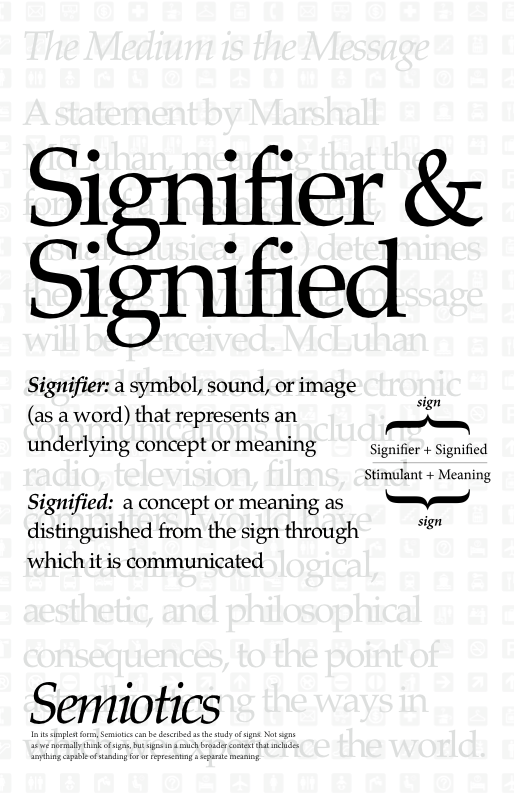SIGNS AND SYMBOLS
SIGNIFIER AND SIGNIFIED

The spoken word ‘TREE’ is a sign consisting of
Signifier- Which gives the mental representation of a perceptible pattern of sound. Plane of Significance- It can be “Tree”
Signified- the relational concept of a Tree not a pictorial ‘mental image’ but a linguistic ‘value’. Plane of the world- Which gives official image.
Saussure also explains that the combination of ‘the signifier’ and ‘the signified’ is arbitrary; i.e., any ‘signifier’ or ‘sound-image’ — any string of language sounds — can be created to signify a particular concept.
The choice is usually dependent on the community that uses that language. A concrete example would be ‘chair.’
The concept of a ‘chair’ is similar across Western thinking, yet the sound images created to label this object are different across European languages; ‘chaise,’ ‘silla,’ ‘stuhl,’ and ‘sedia’ for example.
Saussure made the point that you cannot divide thought from sound, nor sound from thought, “… an idea becomes fixed in a sound and a sound becomes the sign of an idea.” That language is not just an arbitrary naming system. Linguistic signs have values.
Saussure’s Linguistic Values
According to Saussure, the value of a linguistic sign does not come from its intrinsic signification, and it cannot be determined by the sound image alone. In fact, this arbitrarily chosen ‘signifier’ has no value, and the concept — ‘the signified’ — does not have true value by itself because it exists within a language system. Instead, the linguistic value of a sign is determined by other factors within its environment, by the other linguistic signs.

